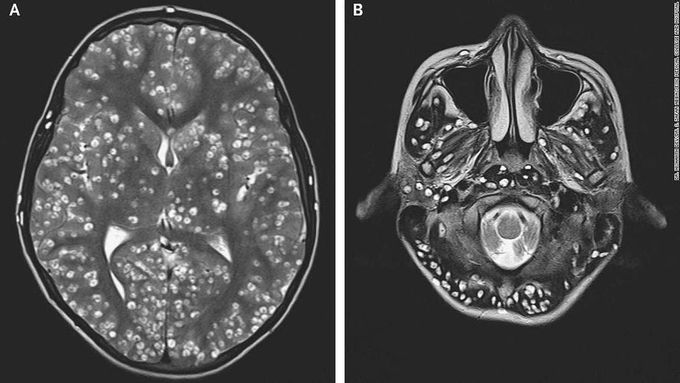


Neurocysticercosis
An 18-year-old who complained of seizures in the emergency room of an Indian hospital turned out to have parasites in his brain, according to a case study published Thursday in the New England Journal of Medicine. Drs. Nishanth Dev and S. Zafar Abbas of the ESIC Medical College and Hospital in Faridabad reported that the patient, who appeared in the ER with swelling over his right eye, was having tonic-clonic seizures. Formerly known as "grand mal" seizures, these neural disturbances cause stiffened muscles and a loss of consciousness. His parents said that their son had felt pain in his right groin for a week. A physical exam revealed that he had tenderness in the right testis and was feeling confused. To learn more about his condition, the medical staff performed an MRI exam and saw damage caused by cysts in his cerebral cortex (the outer mantle of brain tissue) as well as the brain stem, including the cerebellum, which sits at the back of the head above the spinal cord. Diagnosis: neurocysticercosis, a parasitic disease of the brain caused when someone swallows tapeworm eggs that have passed in the feces of someone who has an intestinal tapeworm. The larvae crawl out of the eggs and into muscle and brain tissues, where they form cysts. The doctors also discovered cysts in the patient's right eye and right testis. Because of the number and location of the cysts, his doctors decided against treating the young man with antiparasitic medications. These can worsen brain bleeding and inflammation while leading to loss of vision. Instead, the patient was given an anti-inflammatory drug, dexamethasone, plus antiepileptic medications. Two weeks after his arrival in the ER, the patient died, Dev and Abbas report.

